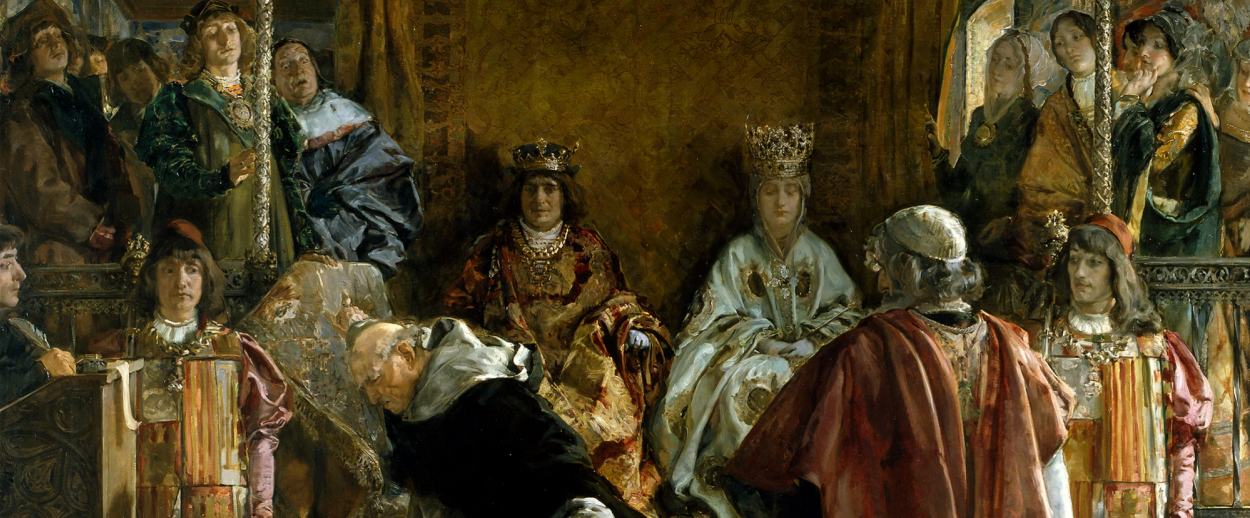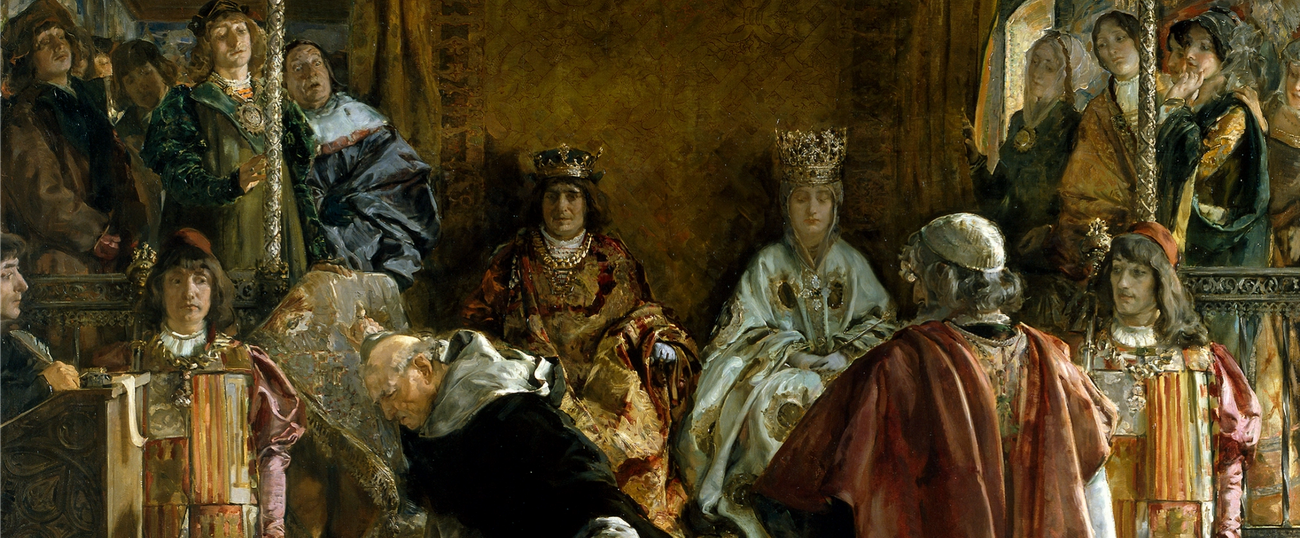525 Years to the Day After Kicking Out Its Jews, Spain Honors Their Language, Ladino
The Spanish Royal Academy will fund a new organization dedicated to preserving and promoting the ancient dialect. Muy Byen.




On more than one occasion in elementary school, my friends made fun of me for saying “my grandfather.” I guess it seemed oddly formal for a child. It was a purposeful choice, though, because the real name I called my grandfather was in Ladino, the dialect of Sephardic Jews. And the Ladino word for grandfather, which struck me as catnip for cruel schoolyard bullies, was Papoo.
I thought of my Papoo today when the Spanish Royal Academy, a Madrid-based organization dedicated to the preservation of Spanish languages, announced that it was creating a Judeo-Spanish branch in Israel that will guarantee the continuation of the language of my ancestors, and will hopefully strengthen its usage. That the news broken on Tisha B’Av, precisely 525 years after the expulsion of the Jews from Spain, seemed particularly fitting.
Darío Villanueva, the director of the Academy, told The Guardian that Ladino was “an extraordinarily important cultural and historical phenomenon” that deserved its own branch of the organization long ago. So far, nine specialists have been hired to run the institution.
The new branch is just the latest of several efforts that Spain has made to resolve its historical injustices towards Jews, most of which have fallen short. In 2015, for example, Spain passed a law allowing descendants of exiled Jews to reclaim Spanish citizenship. That is, if they can prove their lineage, which, of course, is easier said than done. The decision to honor Ladino, on the other hand, is much more streamlined, and likely to have a greater impact.
Thrilled to hear that my ancestral language was thus honored, I called my Papoo. What phrases, I asked him, should the new branch of the Academy make sure to preserve? Did any salty ones come to mind?
“The phrase ‘chamor es chamor,’” he said “mixes Spanish and Hebrew, and it means donkey or ass,” he said. Someone who was not very bright would be called a “calevassa de calabaza,” meaning that they have a “head full of squash.”
Papoo grew up in a place where all the Spanish Jews who hailed from my family’s ancestral town (Monastir, in present-day Macedonia) eventually ended up: Rochester, New York. The community, he told me, was so close that he never even learned the word “usted,” the formal usage for “you” in both Spanish and Ladino, using instead the more informal “tu.”
“The first time I heard it,” he told me, “I didn’t know what they were talking about.”
But as Ladino speakers have grown older and passed away, the language has likewise begun to fade out. That’s why the new announcement is so meaningful to those, like my grandfather, who yearn to once again hear the old language spoken.
“Ladino,” he said, “is my childhood.” That much was clear when he sang me a Ladino lullaby.
“Durme, durme, mi alma donzella,” he sings. Sleep, sleep, my beloved child. “Durme, durme, sin ansia y dolor.” Sleep, sleep, with no fear or pain.
Sephardic Jews will continue to sing these songs to their children, and, maybe, soon, they could also go to school and learn to read and speak their own language, the beautiful and ancient Ladino.
Sophie Aroesty is an editorial intern at Tablet.